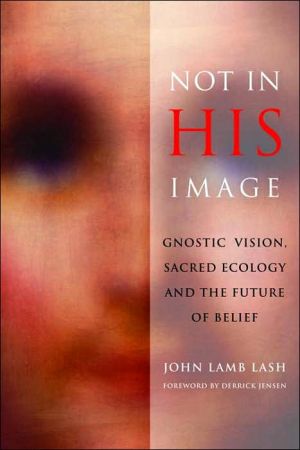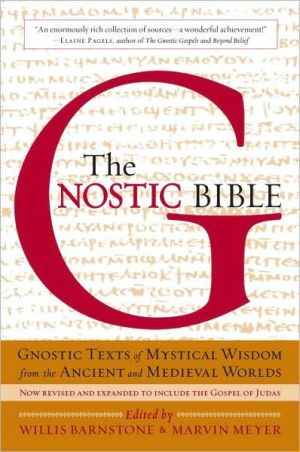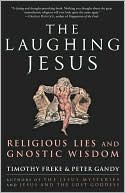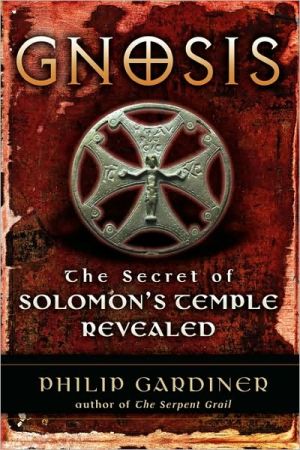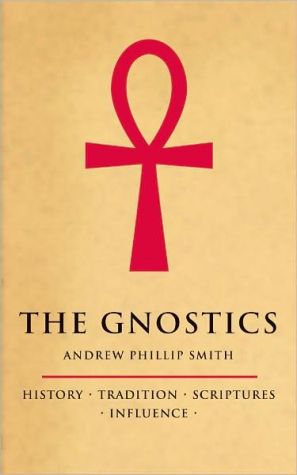Not in His Image: Gnostic Vision, Sacred Ecology, and the Future of Belief
Not in His Image describes the rich spiritual world of pre-Christian classical Europe - the Pagan Mysteries, the Great Goddess, Gnosis, the myths of Sophia and Gaia - and its future as a force for rebalancing our lives and reconnecting to the earth. In his riveting account of who the Gnostics really were and what they were protesting against, John Lash identifies who we once were, and what has become of our original genius. He describes the decisive arc of history from the dawn of the...
Search in google:
Not in His Image describes the rich spiritual world of pre-Christian classical Europe - the Pagan Mysteries, the Great Goddess, Gnosis, the myths of Sophia and Gaia - and its future as a force for rebalancing our lives and reconnecting to the earth. In his riveting account of who the Gnostics really were and what they were protesting against, John Lash identifies who we once were, and what has become of our original genius. He describes the decisive arc of history from the dawn of the Christian Era to the present moment of global terror, a trajectory driven by faith-based violence and fundamentalist politics. No scholar has yet plumbed the depths of the Nag Hammadi Library for the profound cosmological myth of our origins and our intimate bond with Gaia, the living planet. The Gnostic story of the Wisdom Goddess, Sophia, is directly counterpoised to the one Christianity and other monotheistic religions teach us. It explains why a species made in the image of the Father God cannot live peacefully on earth. In Sophia we discover the true foundations of deep ecology. For those of us perplexed by the state of the world and the plight of the planet, Not in His Image gives us back our true story, a myth to guide us beyond faith-based violence toward a sacred ecological path for the future. Library Journal In an eclectic mix of mythology, deep ecology, Tibetan Buddhism, astrology, UFO research, drug mysticism, and speculative science, Lash (Quest for the Zodiac) recommends reviving the cult of the Gnostic earth goddess, Sophia, as a prop to modern environmentalism and as a spiritually healthy alternative to life-denying and oppressive Abrahamic religions. Relying on secondary sources of varying trustworthiness, Lash spins a conspiracy theory in which a rigorist, otherworldly religiosity, "the redeemer complex," was spread through an inner cabal of Jewish priests to the Essenes, where it morphed into Christianity and took over the world, destroying ecofriendly, egalitarian paganism in its wake. He also expounds at length on Gnostic cosmology, which he frankly and accurately describes as "theological science fiction." Lash's history is propagandistic and amateurish; anyone who cites D.H. Lawrence as an authority in religious history can't be taken too seriously. He oversimplifies the heterogeneous Gnostic movement, which at times could be more ascetic and contemptuous of material creation than anything in Western monotheism, and romanticizes paganism by ignoring its own record of religious persecution. Not recommended. Charles Seymour, Wayland Baptist Univ. Lib., Plainview, TX Copyright 2006 Reed Business Information.
\ Library JournalIn an eclectic mix of mythology, deep ecology, Tibetan Buddhism, astrology, UFO research, drug mysticism, and speculative science, Lash (Quest for the Zodiac) recommends reviving the cult of the Gnostic earth goddess, Sophia, as a prop to modern environmentalism and as a spiritually healthy alternative to life-denying and oppressive Abrahamic religions. Relying on secondary sources of varying trustworthiness, Lash spins a conspiracy theory in which a rigorist, otherworldly religiosity, "the redeemer complex," was spread through an inner cabal of Jewish priests to the Essenes, where it morphed into Christianity and took over the world, destroying ecofriendly, egalitarian paganism in its wake. He also expounds at length on Gnostic cosmology, which he frankly and accurately describes as "theological science fiction." Lash's history is propagandistic and amateurish; anyone who cites D.H. Lawrence as an authority in religious history can't be taken too seriously. He oversimplifies the heterogeneous Gnostic movement, which at times could be more ascetic and contemptuous of material creation than anything in Western monotheism, and romanticizes paganism by ignoring its own record of religious persecution. Not recommended. Charles Seymour, Wayland Baptist Univ. Lib., Plainview, TX Copyright 2006 Reed Business Information.\ \
